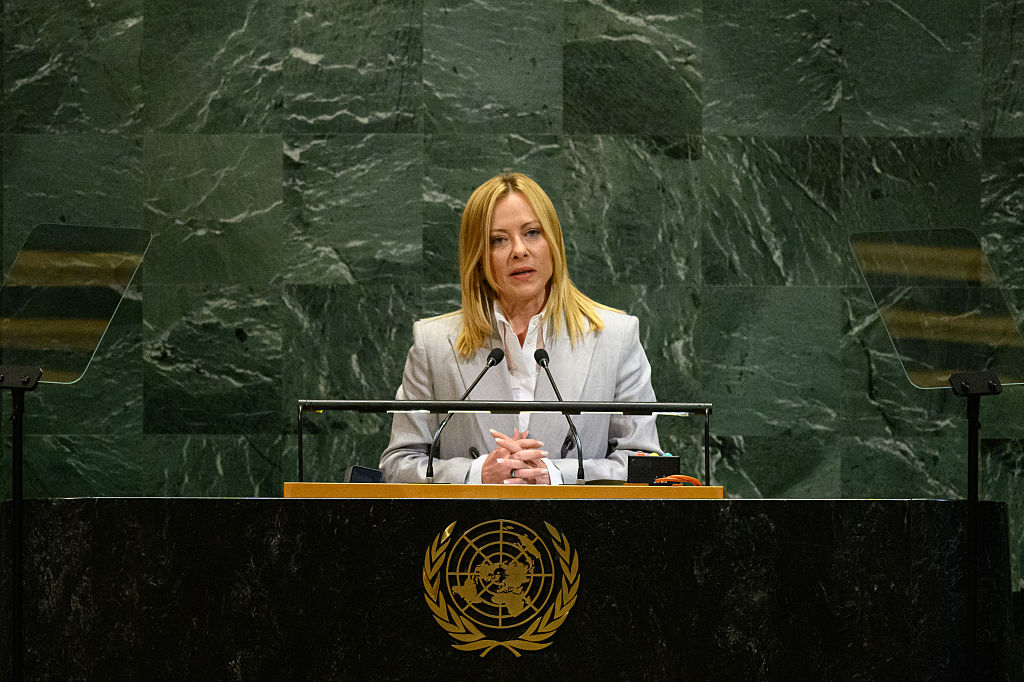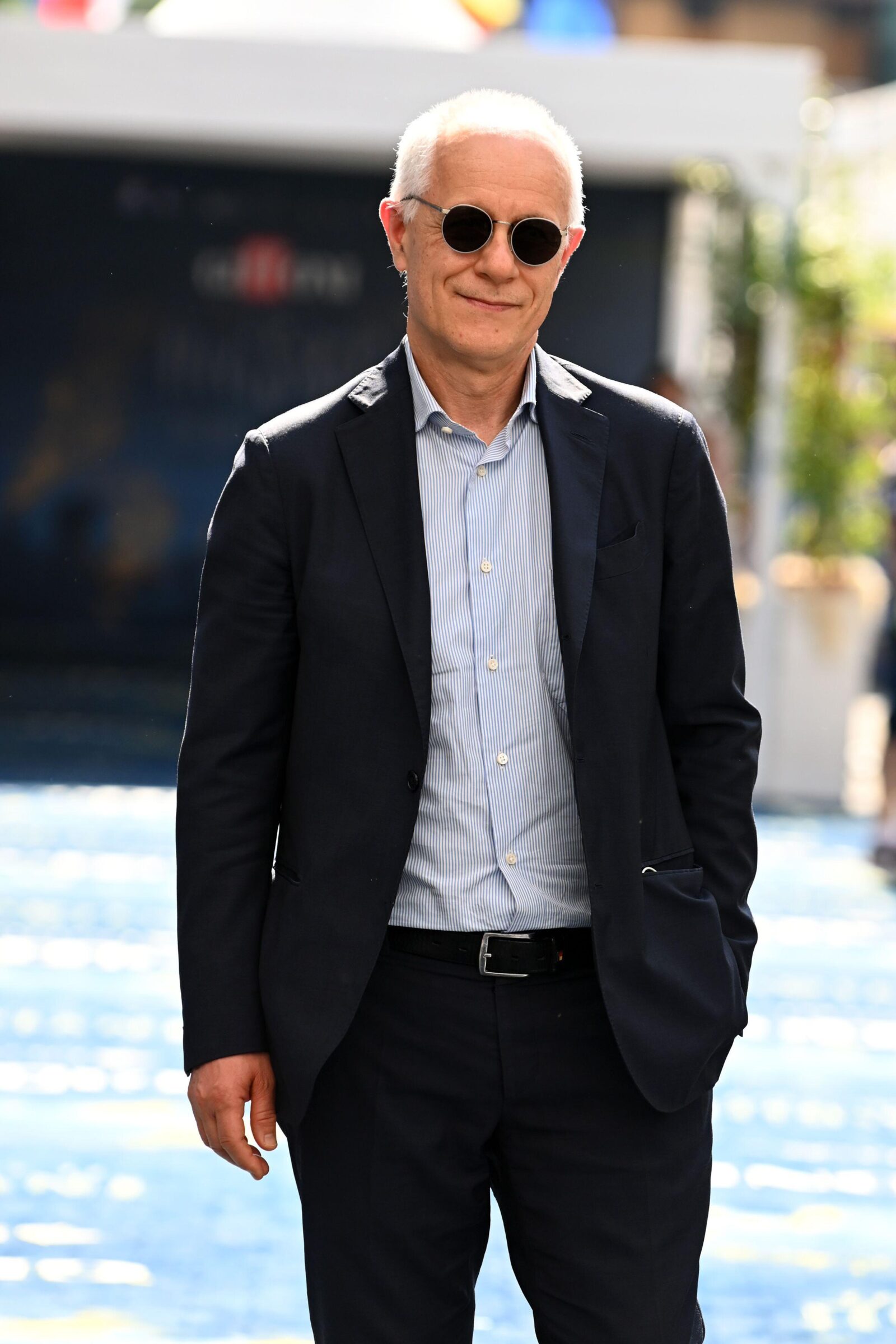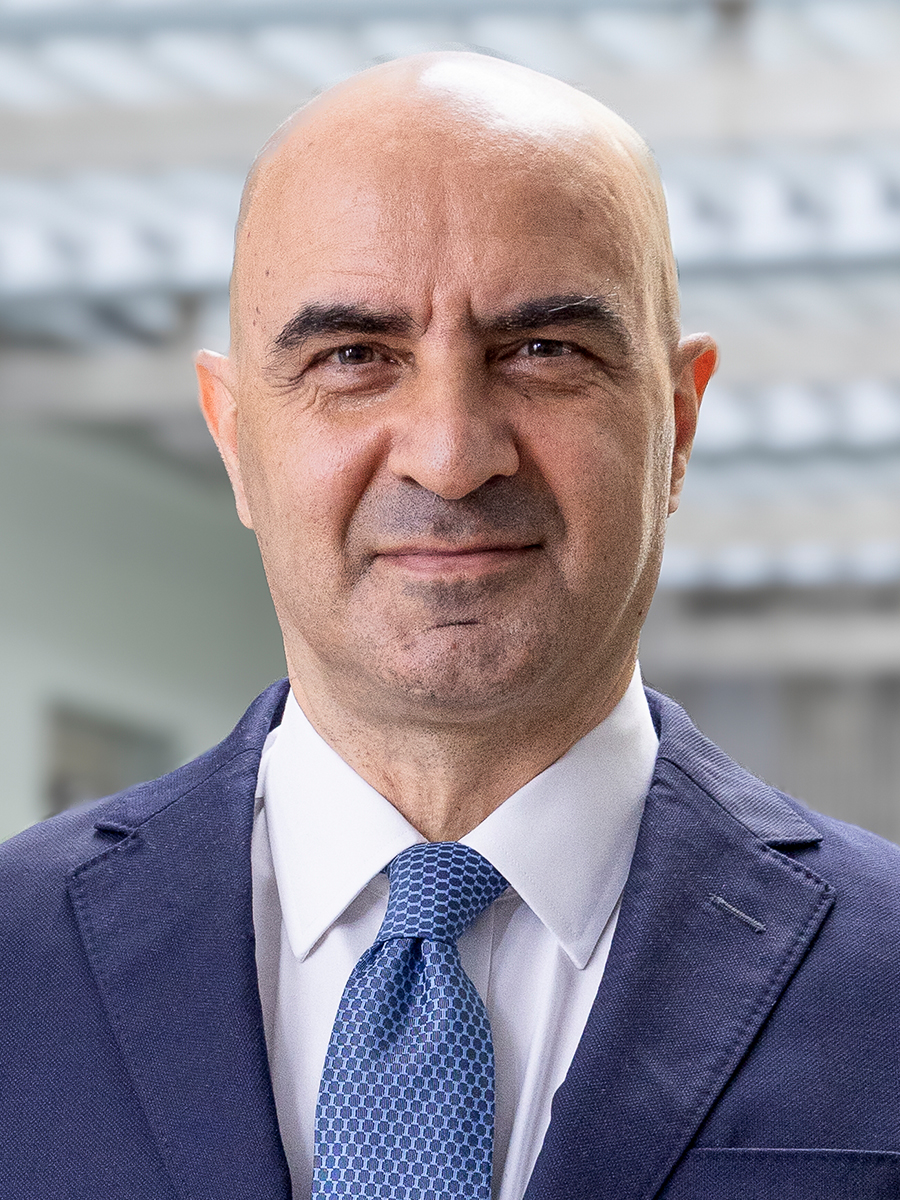Esteemed journalist Luciano Fontana discusses the early successes and challenges ahead for Prime Minister Giorgia Meloni.
A distinguished career as a journalist reporting on politics and foreign affairs led Luciano Fontana to the Editor-in-Chief desk at Corriere della Sera, Italy’s most-read newspaper. Today, as General Manager of that Milan-based paper, Fontana ranks as one of his country’s most respected political observers. He holds a degree in philosophy from La Sapienza University in Rome.
At the time of our conversation, Italy’s conservative Prime Minister, Giorgia Meloni, was facing new challenges—among them a trade dispute with the US and Europe’s support for Ukraine in its war with Russia. My conversation with Fontana focused on Meloni’s leadership and the challenges currently facing Italy from his front line seat at the paper.
When Giorgia Meloni came to power as Prime Minister, many feared a drift toward authoritarianism or even fascism. Yet Italy has gained credibility internationally. How do you interpret this evolution?
The concerns were understandable. The center-right coalition had, in opposition, often blamed Europe for Italy’s problems and even flirted with the idea of leaving the euro. In a broader context, where far-right ideologies are gaining ground globally, these signals were alarming.
But Meloni has shown realism and pragmatism. She redefined national interest in a way that often aligned with broader European and global priorities. Two early decisions were crucial: a disciplined approach to public finances, which stabilized markets and reduced debt servicing costs, and the dismantling of the “superbonus” scheme, which had become a fiscal time bomb. These moves signaled a shift from populist promises to responsible governance.
What about her international positioning, especially on Ukraine and Europe?
Her firm alignment with the Western front in support of Ukraine was a bold and unexpected move, given the coalition’s internal sympathies for Russia. Some parties, like the Lega, had formal ties with Putin’s party. Meloni’s stance was courageous and strategically sound.
On Europe, she didn’t adopt a confrontational stance. Instead, she sought to assert Italy’s interests through dialogue—on migration, on reforming the Stability and Growth Pact.
This sets her apart from other European right-wing leaders. She’s trying to position Italy as a conservative force that operates within EU rules, not against them.
How does Donald Trump’s return to the global stage affect Italy’s position?
Trump’s unpredictability has disrupted the transatlantic balance. Meloni’s relationship with him could be a double-edged sword. Trump prefers bilateral deals and has a confrontational stance on tariffs with Europe. That puts Meloni in a difficult spot—she risks being seen as a mediator without leverage.
However, she hasn’t made choices that contradict EU policy. If she continues to operate within the European framework, she could help bridge the gap between the US and Europe. That would benefit not just Italy, but the EU as a whole.
Can Italy play a leadership role in Europe, given its current political stability?
Absolutely. Stability has intrinsic value, and markets are rewarding it. Italy is currently perceived as more stable than France or Germany. This opens a window for leadership.
Europe lacks structured leadership today. Historically, the EU has only progressed when clear leadership emerged. Italy can help recalibrate EU policies, especially around bureaucracy and the pace of the green transition. Meloni could align with Germany’s new chancellor and leverage Italy’s deep economic ties with France. If she acts decisively, she could evolve from a domestic leader to a European one.

You mentioned a broader geopolitical shift. How do you see the global order evolving?
The era of two global blocs is over. We’re entering a multipolar world. China is now the world’s largest economy and is translating that into geopolitical and military influence. The US, once our closest ally, is now also a fierce competitor.
Italy’s strategy must rest on two pillars: full participation in the European project, because only a united Europe has negotiating power, and engagement with emerging regions: the Arab world, Africa, India, South America. These regions are becoming increasingly important for trade, energy and demographics.
Let’s talk about the Italian economy. What are the main challenges?
Italy is growing, but not fast enough. The PNRR [Italy’s “National Recovery and Resilience Plan” is a nearly $200 billion fund set up initially to assist the country’s economic recovery from the global pandemic] funds are currently the only real source of public investment—and what happens when they run out?
We have strong export-oriented companies, but we’re held back by bureaucracy, inefficiency and poor infrastructure. Research and innovation are also weak points: too few graduates, too little R&D and low productivity. If Meloni wants to leave a legacy, she must address these issues.
How should Italy manage the intertwined issues of demographics and education?
Demographics is a long-term challenge. China’s population projections have dropped dramatically in one generation. Italy faces a similar decline. If trends continue, we’ll reach peak population in 70 years—and in 180 years, we could return to medieval levels.
It’s not just about economic incentives. It’s about services such as childcare, parental leave, work-life balance. Sweden is a good example: By investing in services, it’s the only country that has partially reversed its birth-rate decline.
We also need structured, legal immigration. I support efforts to combat illegal immigration, but they must go hand-in-hand with legal immigration policies to attract skilled workers. Without this, we can’t sustain our labor market or industrial base.
What role can universities play in this strategy?
A crucial one. Attracting international students isn’t just about prestige, it’s about building the future workforce. But even students who come to Italy often don’t stay. Salaries are low, entry procedures are slow and career paths lack structure.
Even students from less economically attractive countries often leave. That’s a serious problem—not just for universities, but for national competitiveness. We need to create conditions where people can build a life here.
If you had to identify the three most urgent priorities for Italy’s future, what would they be?
One, reform the education system to produce more graduates in key sectors. Two, invest in research and innovation, with a focus on results. Three, create a long-term demographic and immigration strategy that supports families and attracts talent. These are the foundations of productivity, growth and competitiveness. If Meloni wants to leave a lasting legacy, this is where she must act.




